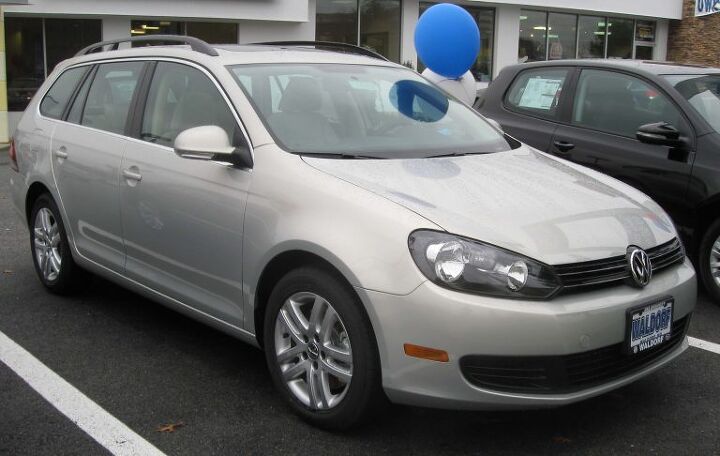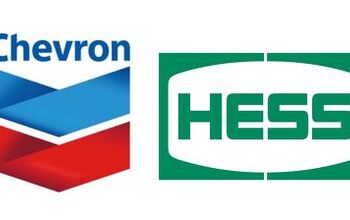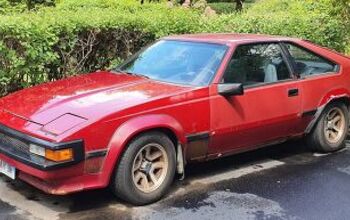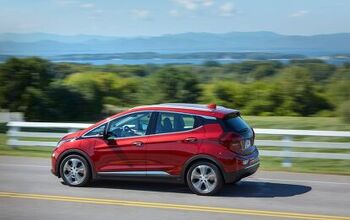No (Four) Pot of Gold: Some Volkswagen Diesel Owners Are Stuck Between Borders

U.S. owners of illegally polluting Volkswagen diesels have already flown to sunny vacation spots or picked up a new vehicle with the help of buyback and compensation checks. North of the border, over 100,000 Canadians who own a 2009-2016 TDI model are waiting for their cut of a $2.1 billion settlement.
However, Volkswagen’s “we’re sorry” gravy train isn’t rolling into everyone’s driveway. Some owners are finding that their vehicles are stuck in a cross-border limbo.
Consider the plight of a Toronto-area woman who picked up a used fifth-generation Jetta in July of 2015. Just two months after getting into her new ride, Jacqueline Charlesworth — like so many others — discovered that her vehicle was a rolling pariah. And, like so many others, Charlesworth hoped to drop the model in exchange for cash.
Unfortunately, taking part in VW’s self-shakedown proved difficult. Seventeen months after the scandal went public, Charlesworth still owns the car, with no guarantee of a payment. The problem lies in the vehicle’s American VIN, and the fact that it’s now registered in Canada.
“I’m really stuck in between two worlds,” the owner told CBC.
Charlesworth found she wasn’t able to take part in the Canadian settlement, as her car hails from the U.S. No problem, as Volkswagen offered her $13,425 from the American settlement pot. Confident in knowing that her car would soon be gone and her compensation money would soon be in the bank, she bought a replacement vehicle.
That’s when her plans went south.
Two weeks ago, Volkswagen sent a letter explaining that it couldn’t offer her the money, as her car was registered in Canada before the September 2015 cut-off date. That’s a big problem, as Charlesworth planned to use the money to support her family. Since receiving the letter, she has attempted to sell the car online, only to find that no one wants to buy a “scandal car.”
Meanwhile, she hasn’t heard anything more from the company, nor has she heard back from lawyers contacted in an attempt to recoup the cost of her Jetta. Volkswagen Canada hasn’t replied to CBC‘s requests to find out if the automaker plans to bring marooned owners like Charlesworth into the Canuck settlement.
The number of owners trapped in the cross-border loophole is small, but their headache isn’t a minor one. According to David O’Connor, partner at Roy O’Connor LLP, one of many firms working on a class action lawsuit against Volkswagen, 15 to 20 clients have contacted law offices in Canada for this exact problem.
[Image: Volkswagen of America]

More by Steph Willems
Latest Car Reviews
Read moreLatest Product Reviews
Read moreRecent Comments
- Cprescott I have watched a series of teardown videos by Munro and Associates (sycophants to Tesla) and cannot believe the hoodwinking that was done with this POS. There was no way it was ever going to sell the golf cart with a bed for the price they said. I cannot believe all of the space those motors take up - so huge and expensive. And the battery pack is the size of Rhode Island!
- Rick T. That's the way the (Milano) cookie crumbles.
- ChristianWimmer My requirements are simple: I love driving fast (Autobahn) and I want a relatively generous and stable range while using creature comforts. No EV on the market can satisfy this requirement, hence I am not interested in one.
- Cprescott Jeep has become fool's gold - thinking they can move this brand upmarket and charge outrageous prices without regard to keeping track of market conditions.
- Chiefmonkey Did these have the same security/theft problem that other Kias have? lol


































Comments
Join the conversation
1. She can keep it. 2. If she can find an American to buy it, they can flip it to VW for the settlement offer. But she will have to sell it for well less than VW is offering for it. 3. If she has the stomach for it, she can file a suit independent of the two class action suits (aka, opting out of the settlement class) and probably get more money back than she would by taking either settlement.
I don't understand: "Two weeks ago, Volkswagen sent a letter explaining that it couldn’t offer her the money, as her car was registered in Canada before the September 2015 cut-off date. That’s a big problem, as Charlesworth planned to use the money to support her family." So, she bought a car. Somehow she must have thought she hit a lottery? In 2015, she bought the car. Other than her inability to sell it, how is it that her situation now is different than if it were not a TDI? Would she have otherwise sold it because she found herself unexpectedly needing cash? Details, details.